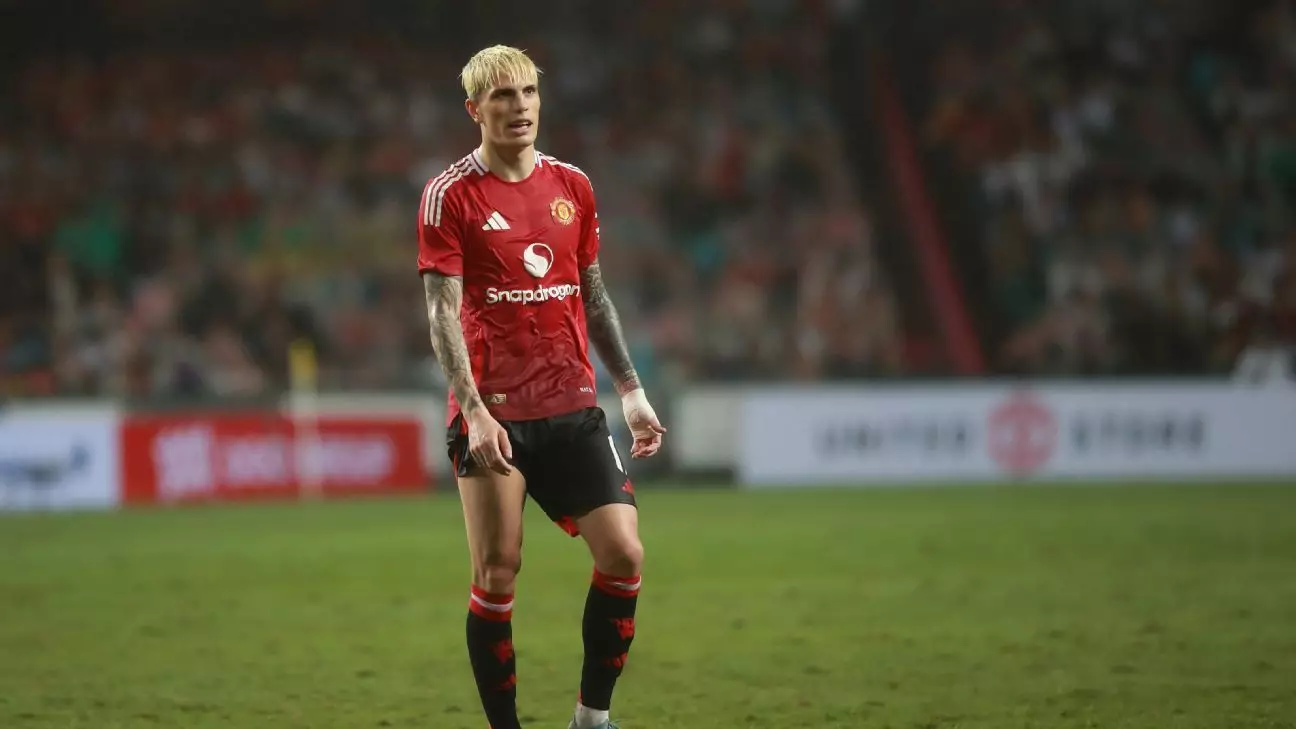Manchester United’s summer saga is shaping up to be a fascinating case study in strategic patience and internal stability. In a surprising move, new manager Ruben Amorim has chosen to leave key players like Alejandro Garnacho, Antony, Jadon Sancho, and Tyrell Malacia behind during the club’s US tour. This decision signals an interest in maintaining control over squad reintegration but also raises questions about long-term planning and player morale. While the rationale provided by Amorim suggests a desire to keep options open, critics might argue that such a tactic risks fostering discord within a team desperate for unity and clarity. Is this approach a masterstroke in managing squad dynamics or merely delaying inevitable adjustments?
The manager’s stance is clear: if these players don’t find suitable offers before the transfer deadline, they will be welcomed back into the fold. This stance underscores a philosophy of flexibility—adapting to evolving transfer markets rather than forcing predetermined squad configurations. Yet, such ambiguity might undermine player confidence, particularly within a club that has struggled with consistency and cohesion in recent seasons. For fans and pundits alike, this scenario illuminates a broader dilemma: Should a club prioritize short-term results or adopt a patient outlook that prioritizes the right fit over immediate fixes?
The Market and Player Aspirations as External Pressures
Amorim’s comments also reveal a nuanced understanding of the environment shaping Manchester United’s squad assembly. He acknowledges that some players are seeking new challenges, calling it a “privilege” to face pressure for goals—a defining trait of elite performers. The statement implicitly recognizes that individual ambitions often clash with team needs, and managing these ambitions demands diplomatic agility. By leaving the door open for these players to depart or return, the manager seems to be embracing a flexible, player-centric approach rather than rigidly enforcing squad continuity.
Moreover, Amorim hints at the strategic importance of timing in transfers, suggesting that clubs might be holding out for last-minute deals while United remains prepared to accommodate arrivals. While this can be viewed as confidence in their valuation, it could also reflect a hesitation that might delay team cohesion, especially at a crucial juncture: the start of the new season. Is this patience a sign of strategic foresight, or simply a reluctance to make hasty commitments that could backfire?
The Challenge of Finding a New Striker in a Competitive Market
One of the most pressing issues for Manchester United remains their search for a prolific striker. The club’s links to Aston Villa’s Ollie Watkins reflect the urgency to strengthen the frontline. Yet, Ruben Amorim’s candid admission that he is content to start the season with the current squad—if necessary—indicates a pragmatic mindset. He emphasizes the importance of nurturing existing talent like Rasmus Hojlund and Josh Zirkzee, demonstrating faith in their potential despite the ongoing search for an ideal No. 9.
This approach reveals a mixture of confidence and caution. The football landscape is more competitive than ever, with clubs hesitant to part with top talent or overspend in a market that can be unpredictable. Amorim’s cautious optimism is encouraging, but it also exposes vulnerabilities; a lack of reinforcement could hamper the team’s ability to compete at the highest levels. On the other hand, his focus on internal development signifies a belief that the existing squad, with appropriate tactical adjustments, could meet the challenge—an optimistic yet risky gamble.
The Broader Implication: A Transition Season or a Calculated Rebuild?
Ultimately, what stands out about Manchester United’s current strategy is its duality. On the surface, it appears to be a plan infused with patience, internal development, and tactical flexibility. Yet, beneath that lies the risk of prolonged instability if external deals falter or if key players choose to depart. Amorim’s willingness to accommodate players’ ambitions while also signaling readiness to adapt if they stay or leave reveals a club at a crossroads—balancing short-term aspirations against long-term vision.
Such an approach demands astute leadership and unwavering confidence. If successful, Manchester United could emerge stronger, integrating fresh talents, fostering internal competition, and building a cohesive squad from within. However, if internal discord, delayed signings, or unproductive player departures dominate the season, this strategy could be viewed as overly cautious, even naive. The coming weeks will serve as a litmus test for whether this bold, flexible approach translates into tangible progress or if it merely postpones inevitable upheaval.

